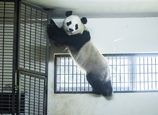
Traditional Chinese culture considers seeds a gift from nature to humanity as they are free and belong to all, but in a globalized world this may be idealism. The US Supreme Court in May ruled in favor of Monsanto against American farmers, saying that farmers couldn't replant patented genetically modified (GM) seeds as this would violate a licensing agreement.
After the ruling, global rallies against Monsanto broke out in 52 countries bringing together millions of activists on May 25. Chinese also echoed the global protests against the biotechnology company and some leading figures in anti-GM campaigns were allegedly detained, according to Weibo posts.
Monsanto's Chinese headquarters in Beijing got extra security on May 25, but no media covered the rally.
But in a local context, the most important question is this: How is the seed market in China and are food supplies secure?
Foreign monopoly
To most consumers, corn and rice are simply corn and rice and few are able to tell organic varieties from non-organic ones. Almost none of them are able to further sub-categorize these or know that the grains and vegetables they eat may have been modified due to foreign origins.
"We have domestic seeds and foreign ones. But vegetables such as tomatoes, cucumbers, cabbages and peppers are basically from global corporations such as the Swiss-based Syngenta," Wang Zhenli, a senior horticulturist from Beijing Futong Environmental Engineering Ltd. told the Global Times.
"These foreign companies have branches and bases in China where they breed these seeds. Their seeds are better than domestic ones in fighting pests and diseases so they tend to be more competitive," Wang said.
China is the second largest country in the world in terms of seed demand, with a market value estimated at 60 billion yuan ($9.8 billion). The annual seed import amounts to around 15,000 tons, according to the People's Daily.
This large market has drawn foreign companies to China and though Wang's firm uses seeds without breeding them, he still feels there is the urgent need to break the seed monopoly.
 |
















 A hemophiliac and his 'treasures'
A hemophiliac and his 'treasures'


![]()
